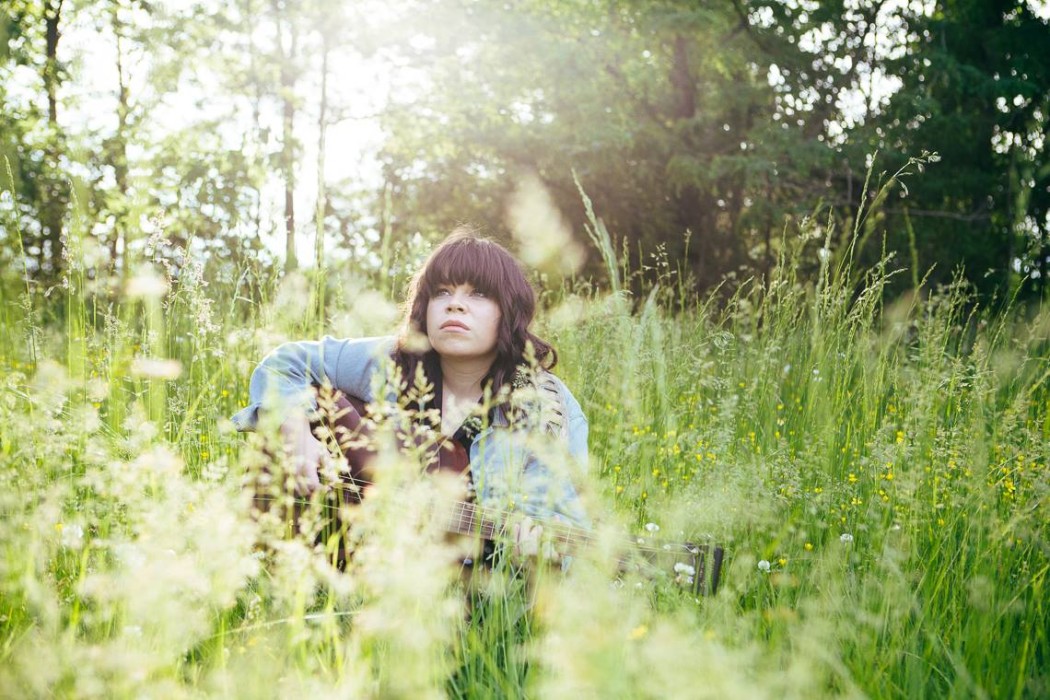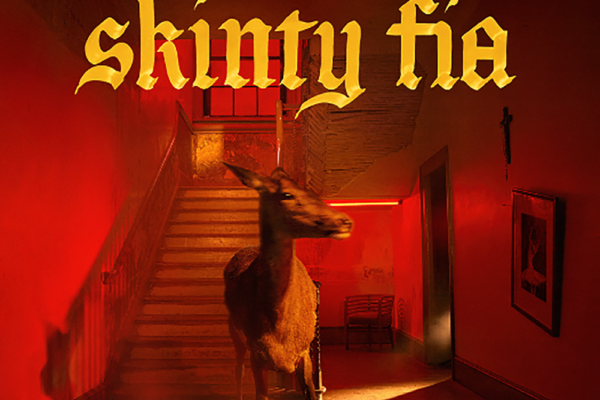“These songs were all based on people in my life in one way or another. Friends, family, people that I’ve met along the way. I know it wasn’t easy to take liberties with their stories, but I tried to make it just like I was writing a song about myself. I really tried to enter this empathetic state of mind where I would be writing as if it was my own personal story.”
Released this past July 17th, Samantha Crain’s Under Branch & Thorn & Tree is infused with powerful, layered storytelling. Sculpting three-dimensional characters within tautly written verses, Crain consistently braids an acute sense of personality and realism with darkened, nuanced melodies. Preserving the authenticity and candor in each song, the album’s production further elevates moments of stirring immediacy and gentle reflection. Recorded at San Francisco’s Tiny Telephone Studios with producer John Vanderslice, Under Branch & Thorn & Tree marks their first collaboration since Crain’s 2013 critically acclaimed album, Kid Face. Speaking to Pancakes and Whiskey one week after her newest record’s release, Crain shed light on the inspirations behind the album and how the decision to record in analogue came from a continued desire to “keep the personhood,” in an age of computers, reinforcing the feeling that “the music that’s being made is being done by actual people.”
“It’s really easy to just keep layering stuff and chop stuff up and tuning stuff and just kind of make everything perfect. I think it’s really easy to just lose the humanity in that. I started recording analogue with a single that I did right before Kid Face, because we did Kid Face in analogue as well. When we started doing that, I just felt like listening back to the recordings, there was the same sense that you get when you listen to a Joni Mitchell record or a Bob Dylan record, where you feel like they’re right there in the room or in the car with you. So I like how you can maintain a lot of the humanity of music and recording in analogue. Now it doesn’t always turn out that way, it’s easy for analogue recordings to sound bad. I’m just lucky because I get to work with John Vanderslice and he’s really good at recording that way.”
Since 2008, Crain has recorded and released over fifty songs. In addition to her latest record, previous collections including The Confiscation EP: A Musical Novella, Songs In the Night, You (Understood), A Simple Jungle, and Kid Face have all been essential in establishing the Oklahoma native as one of the most prolific artists working today. And though driving herself to venues in the States doesn’t ordinarily provide the opportunities or quiet necessary to work on new material, Crain frequently seeks out time to write while traveling by train in Europe, even though certain trains can admittedly be, “entirely distracting.” Describing the benefit and necessity of finding time to work on music within a busy touring schedule, she spoke about taking advantage of peaceful moments, stating, “Whenever I usually end up writing on trains, it’s because of a quiet train and I’ve got time to think.”
“I get on the train, I know where I’m going to end up in two and a half hours. And I’ve got two and a half hours to gather some thoughts and put them down on paper, and look out the window and let my mind wander a bit. In my life, I feel like those times are getting rarer and rarer. There’s so much touring and traveling and stuff like that, finding a quiet moment to gather your thoughts and put some stuff down, it’s really rare, but so important. I’m definitely a quiet car person though. I mean, I kind of do it just for the quiet and the meditative purpose of it.” Explaining how her songwriting doesn’t follow any particular framework or blueprint, Crain said that while “there’s really no method to it,” and “they all come differently,” she does typically begin with words. Occasionally making notes about a particular rhythm or chord progression, the musician will sometimes slip into the train’s bathroom to record a melody to return to later.
Constructing unmitigated portraits of hardship and struggle, the musician’s most recent release is comprised of stories told through the eyes of the working class, with a significant focus on the path of working class women. Taking on the air of a protest record, Under Branch & Thorn & Tree raises the voice of the underdog, while bringing to light the forces that often threaten to erode it. Describing how social commentary has been gradually finding it’s way back into music, Crain spoke about how for the majority of her life, “protest in music hasn’t been a thing,” and how recently things like social media has ignited conversation by bringing a focus to “the inequalities that exist in the world outside of people’s own little bubble.” Conversations that as a songwriter and a music fan, Crain is eager to have.
“Artists are starting to swing back towards that now, and I think that’s good. For me, growing up and still now, I look at my favorite musicians as Gods, almost. And so what they have to say, I’m going to listen, especially if I respect what they’re doing musically and lyrically. And so I really think music is a really powerful way to get ideas out there and to get things into the vernacular and vocabulary of what’s going on. So it is really important to me. I look for it whenever I’m listening to music, I like stuff that goes into what people are talking about. Whether or not it’s blatantly political, that’s not really the issue. The issue is talking about things that are relevant and things that have a bit of meat to them and make you think of it. That’s definitely more of the music that I’m listening to and looking for and the stuff that I hope that I’m trying to create, too.”
Under Branch & Thorn & Tree is available online and in-stores now
Article: Caitlin Phillips
Cover Photo: David McClister




